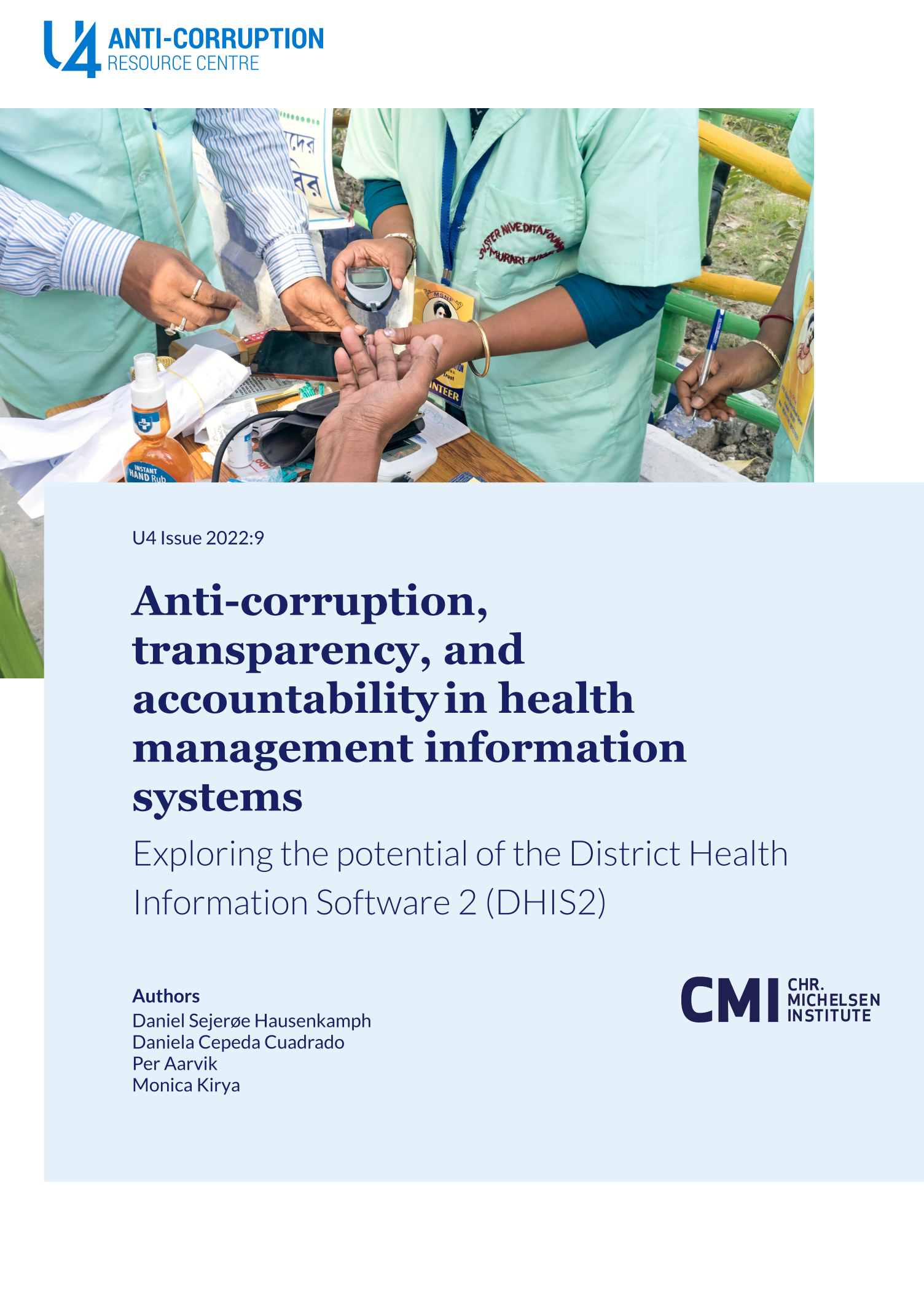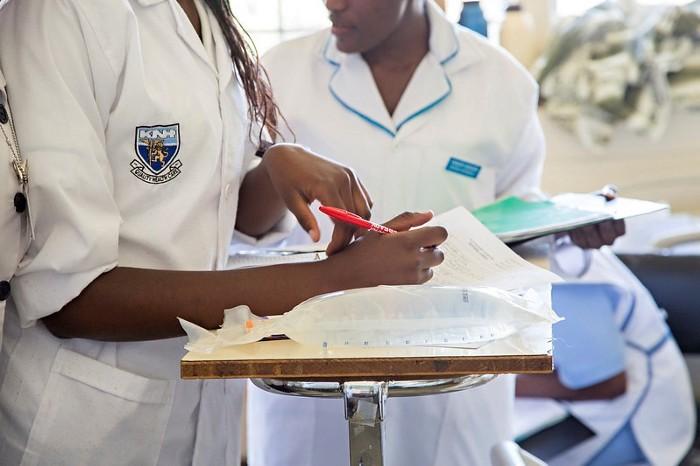Main points
- Health information management systems (HMIS) are central to the digitalisation of the health sector, especially in low-income settings. HMIS are promoted with the promise of improved efficiency and accountability of resources and services. However, their performance often falls short due to limitations in digital infrastructure, regulations, and operational capacities, making them susceptible to corruption and fraud.
- The District Health Information Software 2 (DHIS2) was designed to address the many difficulties low- and middle-income countries face in setting up strong HMIS. It has shown potential to foster a better decision-making culture, strengthen transparency, and promote participation. While HMIS such as DHIS2 are still vulnerable to corruption, they can also play a role in preventing and mitigating it.
- HMIS can help detect fraud and corruption through data analytics, improving public expenditure tracking, and enhancing social accountability and citizen participation. However, shortage of human resources, slow internet connectivity, inadequate technical support, and frequent changes to the software are among the reasons why some countries have struggled to use DHIS2 sustainably.
- Other obstacles to using HMIS as an anti-corruption tool include the limited pace of digitisation of health data, political and administrative incentives to keep information undisclosed, lack of or weak open data policies, lack of institutional incentives, and shrinking progressive civic space. As the value of data increases, there is growing need for anti-corruption considerations to be integrated into the development and deployment of HMIS.
- Strong data governance is needed to make HMIS work with integrity. With the proper regulations and policies in place, data governance processes could ensure that data collection, management, and use are ethical and equitable, do not cause harm to vulnerable populations, and help promote better decision making in the health sector. To realise this potential, one must first improve the quality and protection of data, the interoperability among systems, and data sharing between institutions. When all these conditions are met, HMIS have the potential to play a strategic role in anti-corruption efforts in the health sector.



